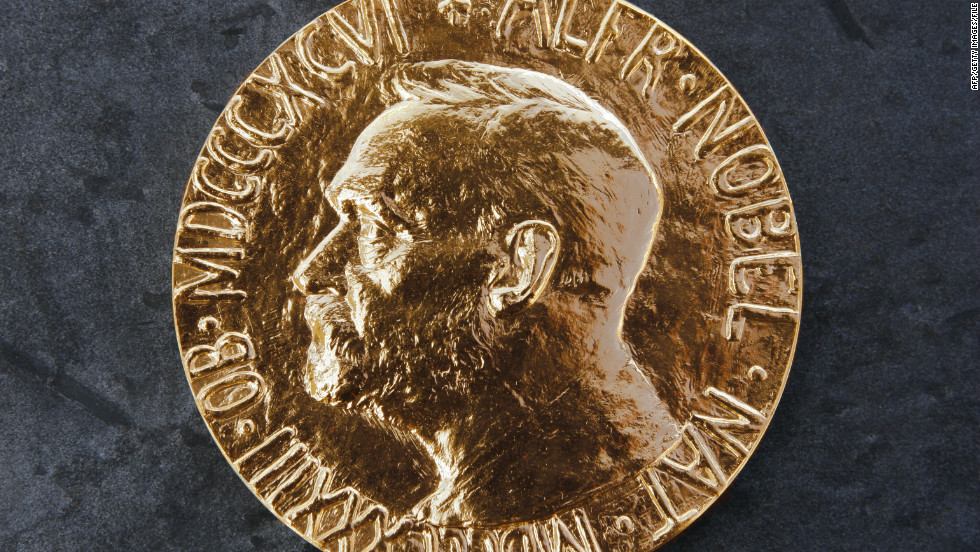Saving Lives, Sharing a Nobel Prize
"I think it would be really too presumptuous of me to turn down a Nobel. Great medicine is often a group of people and I think, going forward, we need to somehow acknowledge that, incorporate that into our policies.""It's great to get prizes, but, you know, at the same time there's always a difficulty in who should get the prize, how many. The reality is most big inventions ... involve many people.""I just feel that this is yet another example -- and this is not the first time -- of where a major discovery is done by a number of people, but when it comes to recognizing that discovery, they're exclusive rather than inclusive.""These viruses are really a permanent threat. We need antivirals and we need vaccines.""Really, COVID has taught us that we have to be better prepared in the future."Michael Houghton, 69, director, Li KaShing Applied Virology Institute, University of Alberta
 |
| Nobel Prize |
"[The researchers Harvey Alter, Michael Houghton and Charles Rice] made seminal discoveries that led to the identification of a novel virus, hepatitis C virus.""Their discovery also allowed the rapid development of antiviral drugs directed at hepatitis C.""For the first time in history, the disease can now be cured, raising hopes of eradicating hepatitis C virus from the world population."Nobel Committee
A simple case of fairness and justice; to acknowledge the work that all members of a team contributed in to arrive at a solution, an identifying solution to a destructive virus. In 2013, when Dr.Houghton was nominated for a Canadian recognition of excellence in science to receive the Gairdner Award alongside two researchers at the U.S.Centers for Disease Control and Prevention for their collaborative work in identifying the hepatitis C virus, Dr.Houghton turned down the award on the basis that two of his key collaborators were not included.
Now, the 2020 Nobel Committee has repeated the Gairdner International Award committee's omission of the two scientists who had worked alongside Dr.Houghton at Chiron Corporation, a U.S. biotechnology company; George Kuo and Qui-Lim Choo. This time, however, when Dr.Houghton was nominated along with Harvey J. Alter and Charles M. Rice, both of whom contributed to the hepatitis C research, Dr.Houghton's response was different; he found it possible to accept the prize.
This situation is anything but unique. The only other Canadian researcher to receive the Nobel Prize for Medicine, was Dr.Frederick Banting, who shared the nomination for the discovery of insulin with his laboratory supervisor at University of Toronto, Dr. J.R. Macleod, in 1923. Dr.Banting was upset that his laboratory colleagues, Charles Best, and James Collip were not equally recognized. But he too along with Dr.Macleod accepted the nomination and the prize that came with it. But they also split the financial award; Banting with Best, and Macleod with Collip.
 |
In 2009, Dr.Houghton wrote an explanation of the joint hepatitis C discovery in an article: "As is evident in the text, I acknowledge the key roles played by George Kuo,Qui-Lim Choo and Dan Bradley in the discovery of he HCV genome. Many other colleagues made important contributions." It was in 1989 that Dr.Houghton and his colleagues identified the virus. and now, finally a hepatitis C vaccine is scheduled for clinical trials to commence in 2021.
According to the Nobel Committee and the obvious reason why this group of distinguished medical scientists are being acknowledged with the most prestigious of international awards -- reflecting the importance to humanity in its ongoing battle against deadly viruses that strike vulnerable humans whose immune systems are challenged by the invasion of replicating viruses looking for homes in human bodies -- is that their discovery has saved millions of lives.
Their research resulted in explicating a source of blood-borne hepatitis that remained a mystery and lacked explanation through researching hepatitis A and B viruses whose origins had already been researched. According to Dr.Houghton, hepatitis C is responsible for killing some 400,000 people worldwide, on an annual basis.

Labels: Hepatitis C, Medicine, Nobel Prize, Recognition, Research

0 Comments:
Post a Comment
<< Home